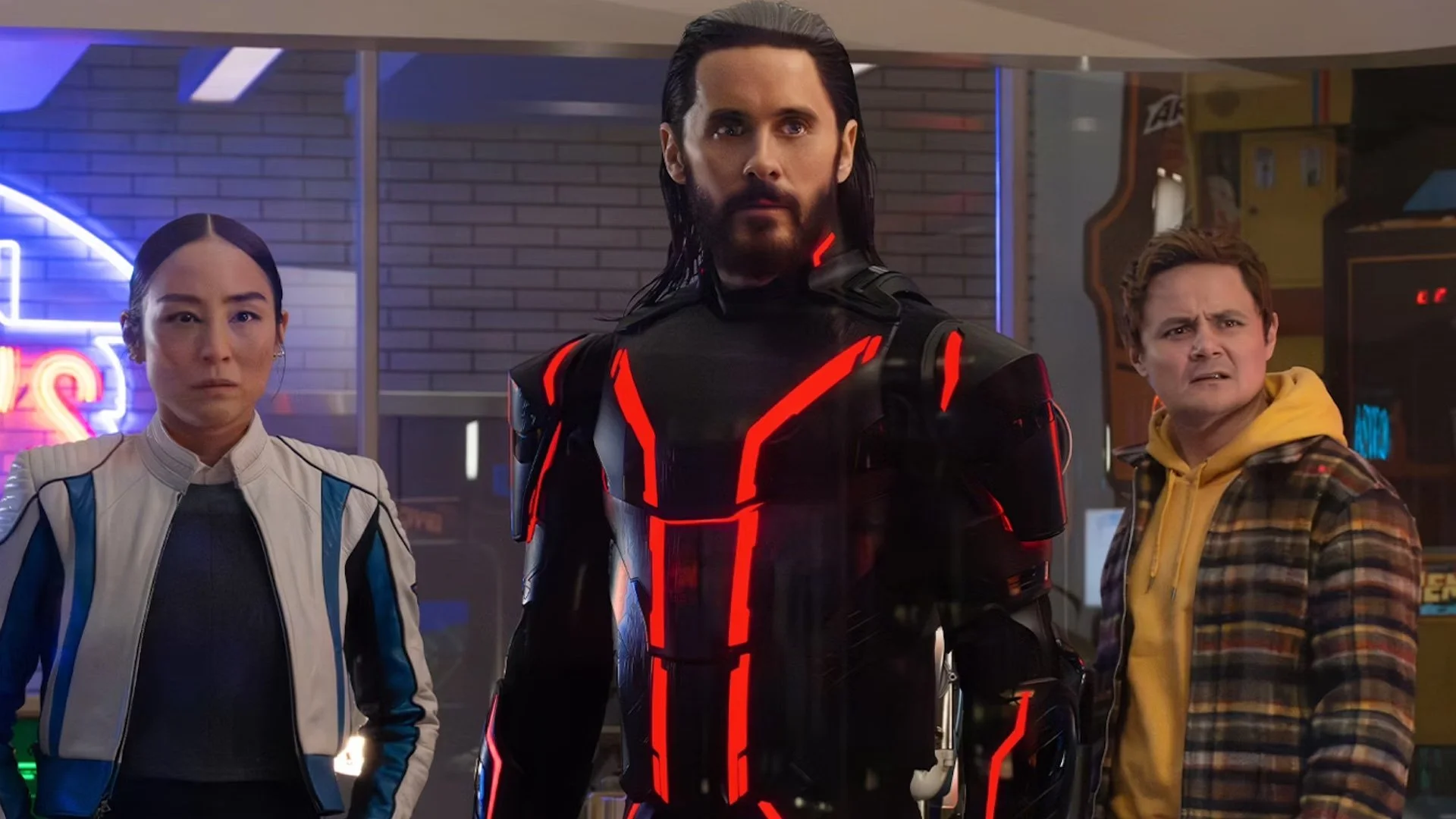TRON: ARES Set to Lose Over $132 Million for Disney; How the Movie Crashed the Grid
The neon lights of Tron: Ares are flickering out faster than Disney ever expected. What was supposed to be a triumphant return to the Grid has turned into one of the studio’s biggest sci-fi flops in years with a $220 million gamble that’s on track to lose a staggering $132.7 million.
According to Deadline, the production costs were far higher than the previously floated $170–180 million range. Factor in marketing, reshoots, and flashy promotional stunts like a laser-lit Nine Inch Nails concert premiere on Hollywood Boulevard, and Disney’s bill ballooned to $347.5 million.
With a worldwide box office sitting at just $103 million after a brutal 67% drop in its second weekend, Tron: Ares is officially out of power.
An insider bluntly summed it up: “There was no specific vision, to be honest. The idea that Disney would spend a quarter of a billion dollars on a Jared Leto film that is a franchise that hasn’t worked in four decades is insane.”
Even if Tron: Ares hits a global total of $160 million, its financials don’t add up. The film would generate around $214.8 million in total revenues, including worldwide theatrical rentals, home entertainment, television rights, and airlines. That still leaves Disney deep in the red.
I thought director Joachim Rønning’s entry in the long-running series was a ton of fun! I had a blast watching the movie, and so did a lot of other fans, but despite the franchise’s cult status, the results fell flat.
Many inside Disney point to the screenplay as the key failure. While Rønning initially wanted Ford v Ferrari writer Jez Butterworth to overhaul Jesse Wigutow’s script, the studio pushed ahead. Later, Billy Ray was brought in to clean up the story during reshoots.
Since its debut in 1982, critics have always seen Tron as more style than substance. The original film bombed at the box office but found life as a cult classic on home video. Tron: Legacy fared better in 2010, pulling in $400 million worldwide and showcasing the early talent of Joseph Kosinski, who later directed Top Gun: Maverick. That modest success was enough to justify a sequel, but not enough to make the franchise mainstream.
Unfortunately, Ares couldn’t pull the same trick. Audiences weren’t moved by the spectacle. CinemaScore gave it a B+, the same as Legacy, while younger audiences, the crowd Disney hoped to electrify, barely showed up. Only 6% of ticket buyers were aged 13–17, and the film’s biggest fans were Gen-Xers clinging to nostalgia.
Despite tabloid chatter, Leto’s reputation wasn’t the issue. As one insider put it, moviegoers just weren’t excited for this story. “Tron is the star at the end of the day,” they said, adding that even with solid word of mouth, there wasn’t enough FOMO to spark momentum.
Comparisons to Dune highlight the problem. Denis Villeneuve managed to take a complex, decades-old sci-fi property and make it essential viewing thanks to a sharp script and stars like Zendaya and Timothée Chalamet. Tron: Ares lacked both the story power and the modern appeal.
“The franchise is dead,” one source declared after the film’s disappointing opening weekend. But history suggests otherwise. Sci-fi franchises have a habit of rebooting after years of dormancy, Alien, Planet of the Apes, even Superman have all made successful comebacks after major box office failures.
And there’s still a spark of life in Tron. The Disney theme park rides inspired by the films remain among the most popular attractions in Orlando and Shanghai. In many ways, Ares served as a two-hour commercial for those high-speed light cycle experiences.
Time, as always, might be the franchise’s greatest ally. Tron has crashed before, and the lights eventually came back on. For now, though, Disney’s latest journey into the digital frontier has ended in a short circuit.
